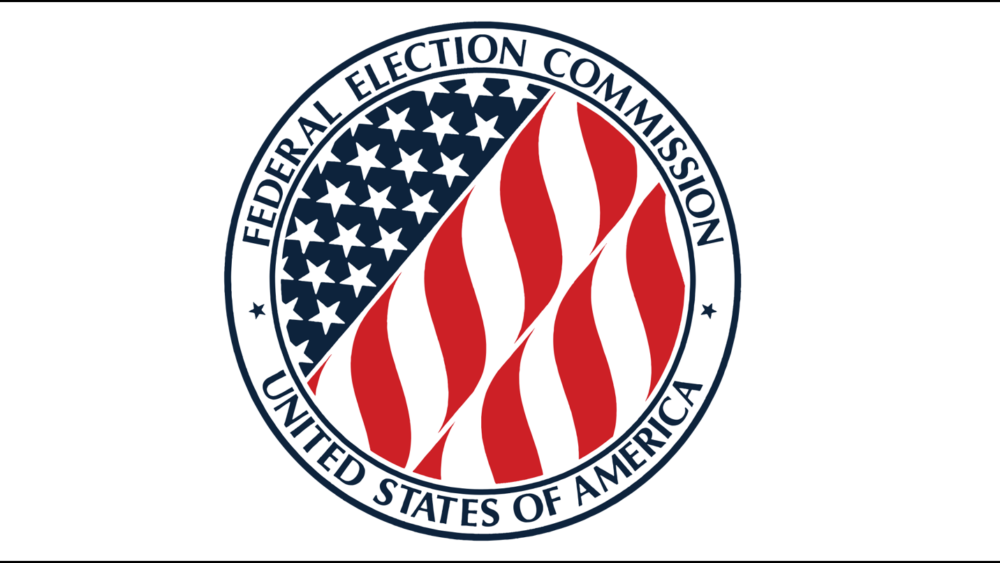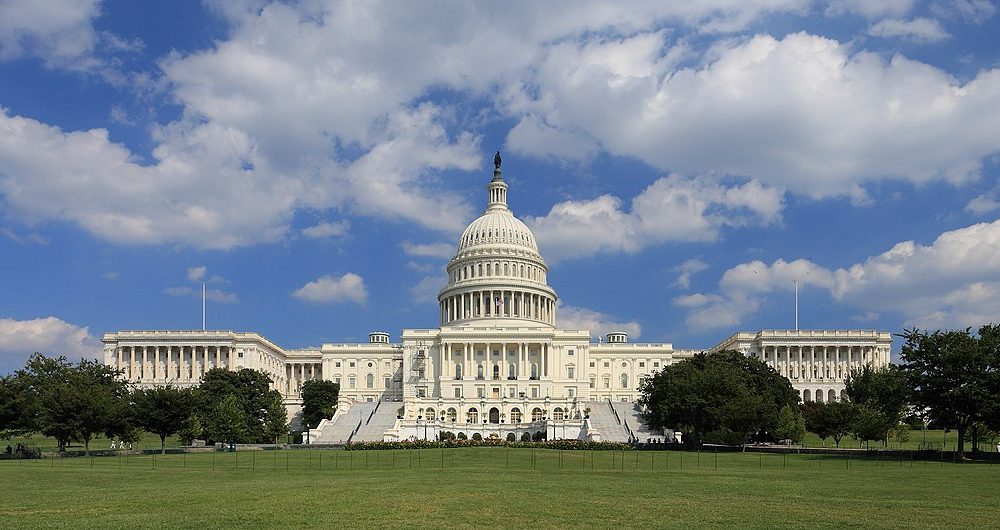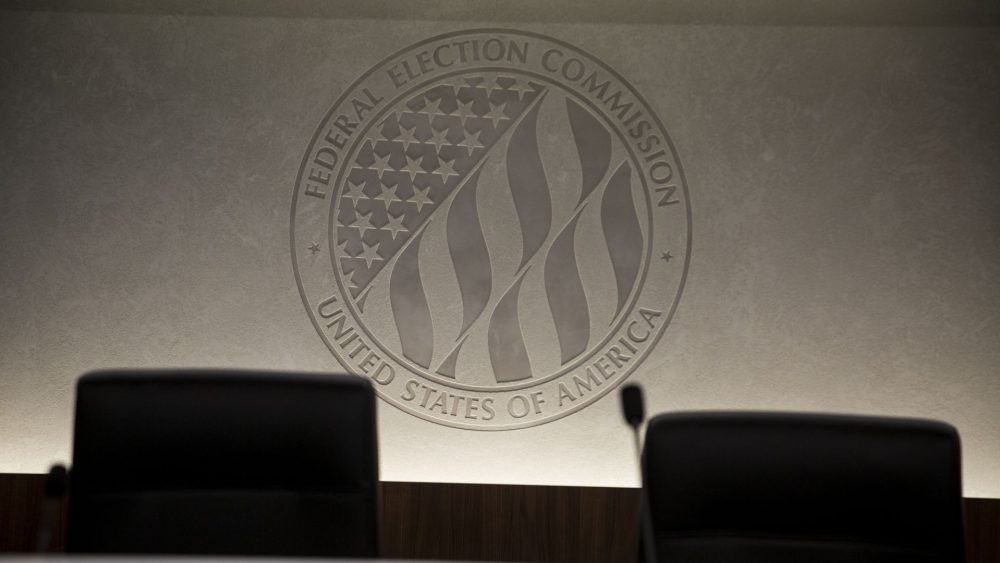September 11, 2023 •
FEC Seeks Comments on Disclosure Filing and Its Website

On September 8, the Federal Election Commission (FEC) announced it was seeking public input on ways to improve its report filing processes and public website. The FEC is interested in recommendations and comments regarding potential opportunities for improving the process […]
On September 8, the Federal Election Commission (FEC) announced it was seeking public input on ways to improve its report filing processes and public website.
The FEC is interested in recommendations and comments regarding potential opportunities for improving the process for filing required disclosure reports and for improving the organization, substance, and how to best provide the public with easily accessible information on its website.
Comments must be in writing and submitted by email to publiccomment2023-14@fec.gov. The comment window will close 60 days after publication of the Notification of Request for Public Comment in the Federal Register.

US Capitol - by Martin Falbisoner via Wikimedia Commons
On May 2, U.S. Rep. Yvette D. Clarke introduced legislation into the U.S. House of Representatives to require disclosure of political campaign content created by artificial intelligence. House Bill 3044 amends the Federal Election Campaign Act of 1971 (FECA) to […]
On May 2, U.S. Rep. Yvette D. Clarke introduced legislation into the U.S. House of Representatives to require disclosure of political campaign content created by artificial intelligence.
House Bill 3044 amends the Federal Election Campaign Act of 1971 (FECA) to provide transparency and accountability for the use of content generated by artificial intelligence (generative AI) in political advertisements. It requires such advertisements to include a statement within the contents of the advertisements if generative AI was used to generate any image or video footage in the advertisements. The bill also expands FECA’s definitions of online platform.
If passed, the Federal Election Commission (FEC) would be required to make regulations within 120 days of the day of the enactment of the bill. Additionally, the bill explicitly states the legislation would come into effect on or after January 1, 2024, even if the FEC has not yet promulgated regulations to carry out the new law.
The bill, entitled the Require the Exposure of AI–Led Political Advertisements Act (REAL Political Advertisements Act) has been referred to the House Committee on House Administration.
March 8, 2023 •
FEC Final Rule on Internet Disclaimers Takes Effect

FEC; Photo: Sarah Silbiger/CQ Roll Call
On March 1, the Federal Election Commission’s (FEC) Final Rule concerning internet communications disclaimers took effect. With it, the definition of public communication was revised in 11 CFR §110.11 in an attempt to clarify how it applies to general public […]
On March 1, the Federal Election Commission’s (FEC) Final Rule concerning internet communications disclaimers took effect. With it, the definition of public communication was revised in 11 CFR §110.11 in an attempt to clarify how it applies to general public political advertising over the internet.
The amendments to the rules for internet-specific disclaimer requirements endeavor to be analogous to those for print and broadcast media, while also accounting for the unique characteristics of internet public communications, according to the FEC. The new internet disclaimer provisions do not impose the stand-by-your-ad requirements applicable to radio and television advertisements.
The FEC stated it adopted these updates to the regulatory rules “in light of technological advances since the Commission last revised its rules governing internet disclaimers in 2006, and to address questions from the public about the application of those rules to internet communications,” according to the memorandum submitted earlier with a draft of the rule.
February 10, 2023 •
Federal Contribution Limits Increase for 2023-2024 Election Cycle

FEC; Photo: Sarah Silbiger/CQ Roll Call
The Federal Election Commission (FEC) published the 2023-2024 election cycle contribution limits, which have been indexed for inflation. As required by the Bipartisan Campaign Reform Act of 2002, the FEC must adjust certain contribution limits every two years. The individual […]
The Federal Election Commission (FEC) published the 2023-2024 election cycle contribution limits, which have been indexed for inflation.
As required by the Bipartisan Campaign Reform Act of 2002, the FEC must adjust certain contribution limits every two years.
The individual and nonmulticandidate PAC contribution limit to federal candidates has increased from $2,900 to $3,300 for both primary and general elections, allowing for a total of $6,600 for a federal candidate.
The limits on contributions by individuals to national party committees has increased from $36,500 to $41,300 per calendar year.
Individuals may now contribute $123,900 per calendar year to committees of a national political party for presidential nominating conventions, to committees of a national political party for preparation for and the conduct of election recounts and contests and other legal proceedings, and to committees of a national political party for the construction, purchase, renovation, operation, and furnishing of one or more buildings for party headquarters.
February 10, 2023 •
FEC Updates Lobbyist Bundling Disclosure Threshold

The Federal Election Commission (FEC) published its price index adjustments for expenditure limitations and the federal lobbyist bundling disclosure threshold. The lobbyist bundling disclosure threshold has increased for 2023 from $20,200 to $21,800. This threshold amount is adjusted annually. Federal […]
The Federal Election Commission (FEC) published its price index adjustments for expenditure limitations and the federal lobbyist bundling disclosure threshold.
The lobbyist bundling disclosure threshold has increased for 2023 from $20,200 to $21,800.
This threshold amount is adjusted annually.
Federal law requires authorized committees of federal candidates, leadership political action committees (PACs), and political party committees to disclose contributions bundled by lobbyists and lobbyists’ PACs.
January 6, 2023 •
FEC Adjusts Penalty Amounts for Inflation

The Federal Election Commission has announced its civil monetary penalty amounts, adjusted for inflation, for 2023. The potential fines for civil violations of federal campaign finance laws have increased to range from $7,028 to $82,188, from the previous range of […]
The Federal Election Commission has announced its civil monetary penalty amounts, adjusted for inflation, for 2023.
The potential fines for civil violations of federal campaign finance laws have increased to range from $7,028 to $82,188, from the previous range of $6,523 to $76,280.
The amounts are calculated through a statutory formula applying the most recent “cost-of-living adjustment multiplier,” issued by the Office of Management and Budget, to the current amounts. The amended civil monetary penalties took effect as of December 29, 2022, the publication date in the Federal Register.
December 2, 2022 •
FEC Approves Rules for Internet Disclaimers

FEC; Photo: Sarah Silbiger/CQ Roll Call
On December 1, the Federal Election Commission (FEC) formally approved a Final Rule and Explanation and Justification revising its disclaimer requirements for certain public communications placed for a fee on the internet. The FEC stated it is adopting these updates […]
On December 1, the Federal Election Commission (FEC) formally approved a Final Rule and Explanation and Justification revising its disclaimer requirements for certain public communications placed for a fee on the internet. The FEC stated it is adopting these updates to the regulatory rules “in light of technological advances since the Commission last revised its rules governing internet disclaimers in 2006, and to address questions from the public about the application of those rules to internet communications,” according to the memorandum submitted with the approved draft.
By amending 11 CFR §110.11, the regulations will require that disclaimers appear on certain public communications made over the internet. Some communications will be permitted to include an “adapted disclaimer” when a full disclaimer cannot be provided or would occupy more than 25 percent of the communication due to space or character constraints. The final rule also revises the definition of “public communication.” The term now includes “communications placed for a fee on another person’s website, digital device, application, or advertising platform.”
The FEC also approved another measure seeking comments on whether its definition of “public communication” or “internet public communications” should also include internet communications that are “promoted for a fee” on another person’s website, digital device, application, or advertising platform. The Supplemental Notice will be published in the Federal Register at a future date. The goal of these proposals is to apply the Federal Election Campaign Act’s disclaimer requirements to general public political advertising on the internet and to revise the definition of “public communication” to clarify how it applies to such advertising.
The FEC must now transmit the approved regulations to the Speaker of the House of Representatives and the President of the Senate for a thirty-legislative-day review period.

FEC; Photo: Sarah Silbiger/CQ Roll Call
On May 3, the U.S. Senate Committee on Rules and Administration favorably reported to the full Senate its approval of the nomination of Dara Lindenbaum to serve as a commissioner on the Federal Election Commission (FEC). In January, FEC Vice […]
On May 3, the U.S. Senate Committee on Rules and Administration favorably reported to the full Senate its approval of the nomination of Dara Lindenbaum to serve as a commissioner on the Federal Election Commission (FEC).
In January, FEC Vice Chair Steven T. Walther announced he would be stepping down as commissioner upon the nomination and confirmation of his replacement.
Lindenbaum, who was nominated by President Joe Biden on January 21, is currently an attorney with Sandler Reiff Lamb Rosenstein & Birkenstock, P.C., previously worked with the Voting Rights Project at the Lawyers’ Committee for Civil Rights Under Law. According to her profile on her law firm’s website, she also currently serves as General Counsel to Stacey Abrams’ campaign for Governor of Georgia.
With the appointment of Lindenbaum, there will be three registered members of the Republican Party, and three registered members of the Democratic Party. No more than three members of the FEC may be registered with the same political party.
To become a commissioner, Lindenbaum must now be confirmed by the U.S. Senate.
February 2, 2022 •
FEC Updates Lobbyist Bundling Disclosure Threshold

Today, the Federal Election Commission (FEC) published its price index adjustments for expenditure limitations and the federal lobbyist bundling disclosure threshold. The lobbyist bundling disclosure threshold has increased for 2022 from $19,300 to $20,200. This threshold amount is adjusted annually. […]
Today, the Federal Election Commission (FEC) published its price index adjustments for expenditure limitations and the federal lobbyist bundling disclosure threshold.
The lobbyist bundling disclosure threshold has increased for 2022 from $19,300 to $20,200. This threshold amount is adjusted annually.
Federal law requires authorized committees of federal candidates, leadership political action committees (PACs), and political party committees to disclose contributions bundled by lobbyists and lobbyists’ PACs.
Additionally, the FEC published its adjusted Coordinated Party Expenditure Limits for political parties for 2022.
December 17, 2021 •
FEC Chooses Allen Dickerson as Chair for 2022

FEC; Photo: Sarah Silbiger/CQ Roll Call
On December 16, the Federal Election Commission elected Commissioner Allen Dickerson as its chairman for 2022. Dickerson will replace current Chairwoman Shana M. Broussard. The chairmanship is a rotating, one-year position.No commissioner may serve as chair more than once during […]
On December 16, the Federal Election Commission elected Commissioner Allen Dickerson as its chairman for 2022.
Dickerson will replace current Chairwoman Shana M. Broussard.
The chairmanship is a rotating, one-year position.No commissioner may serve as chair more than once during his or her term.
Additionally, Commissioner Steven T. Walther was elected to the position of vice chair.
May 6, 2021 •
FEC Recommendations to Congress Include a Request to Prohibit Unintentional Recurring Contributions

FEC; Photo: Sarah Silbiger/CQ Roll Call
On May 6, a unanimous Federal Election Commission (FEC) sent a message to the U.S. Congress: prohibit political campaigns from using tactics that unwittingly enter donors into recurring contributions. As part of a package of legislative recommendations approved at its […]
On May 6, a unanimous Federal Election Commission (FEC) sent a message to the U.S. Congress: prohibit political campaigns from using tactics that unwittingly enter donors into recurring contributions.
As part of a package of legislative recommendations approved at its open meeting, the bipartisan commission asked Congress to amend current federal campaign finance law to require “affirmative consent” by donors if a political entity wants the donors enrolled in a program of recurring contributions.
As reported by the New York Times last month, campaigns involved with former President Donald J. Trump steered large numbers of their political contributors, without the contributors’ realization, into repeated periodic donations though prechecked boxes (for authorization) included on what many donors thought was a one-time payment form. The tactic has also been used by groups supporting Democratic candidates, including Actblue and the Democratic Congressional Campaign Committee.
In its legislative recommendation, the FEC stated “that many contributors are unaware of the ‘pre- checked’ boxes and are surprised by the already completed transactions appearing on account statements.”
February 25, 2021 •
Federal Election Commission Approves AO for PAC Data Use

FEC; Photo: Sarah Silbiger/CQ Roll Call
On February 25, the Federal Election Commission (FEC) approved an advisory opinion allowing certain PACs to use aggregated data collected from the PAC’s contributors to advance the PAC’s political interests. Advisory Opinion 2021-02 holds an independent expenditure-only PAC may inform […]
On February 25, the Federal Election Commission (FEC) approved an advisory opinion allowing certain PACs to use aggregated data collected from the PAC’s contributors to advance the PAC’s political interests.
Advisory Opinion 2021-02 holds an independent expenditure-only PAC may inform a member of Congress or congressional candidate of the number of its contributors who live in the relevant state or district and the collective dollar amount that they give to the PAC. The request for the opinion was made by FEN-PAC, an independent expenditure-only political committee engaging lawmakers and candidates to advocate on certain legislative and policy issues. FEN-PAC, in its request, said it would not disclose any contributor’s contact information, nor would FEN-PAC or any third parties use any individual contributor information to solicit contributions or to sell other products or services.
The FEC held such use of aggregate data does not violate the Federal Election Campaign Act or any FEC regulations because it is not being sold or used for either soliciting contributions or commercial purposes.
The FEC specifically did not address any other federal laws or regulations could be affected by the PAC’s use of the aggregated data.
December 23, 2020 •
New FEC Chair and Vice Chair for 2021

FEC; Photo: Sarah Silbiger/CQ Roll Call
On December 22, the Federal Election Commission (FEC) announced the election of Shana M. Broussard as its chairwoman for 2021. Additionally, Allen Dickerson was elected as vice chair for next year. Both Broussard and Dickerson, along with Sean Cooksey, were […]
On December 22, the Federal Election Commission (FEC) announced the election of Shana M. Broussard as its chairwoman for 2021.
Additionally, Allen Dickerson was elected as vice chair for next year.
Both Broussard and Dickerson, along with Sean Cooksey, were all confirmed by the U.S. Senate on December 9.
By confirming three new commissioners, the FEC, where only three of the agency’s six seats had been filled since July 4, are now able to conduct official business.
Federal law requires at least four commissioners agree on any official action. The positions of chair and vice chair are rotating, one-year positions.
August 11, 2020 •
FEC Adjusts Penalty Amounts for Inflation

On August 7, the Federal Election Commission’s published its civil monetary penalty amounts adjusted for inflation in the Federal Register. The potential fine for civil violations of federal campaign finance laws now ranges from $6,069 to $70,973. The amounts are […]
On August 7, the Federal Election Commission’s published its civil monetary penalty amounts adjusted for inflation in the Federal Register.
The potential fine for civil violations of federal campaign finance laws now ranges from $6,069 to $70,973.
The amounts are calculated through a statutory formula applying the most recent “cost-of-living adjustment multiplier,” issued by the Office of Management and Budget, to the current amounts.
The amended civil monetary penalties took effect as of August 7, the publication date.
State and Federal Communications, Inc. provides research and consulting services for government relations professionals on lobbying laws, procurement lobbying laws, political contribution laws in the United States and Canada. Learn more by visiting stateandfed.com.

